You know you're in trouble when the high point of your day is Arianna Huffington.
I've spent the last three days in Las Vegas, lurking incognito at the Daily Kos convention. (Previous days here and here and here.)
Today was definitely the worst of the three, probably because the discourse was dominated by actual Democratic politicians -- officials, ex-officials, and candidates -- the sorry varmints that Kosniks so badly want to elect.
Howard Dean may not be the very worst way to start your day, but anything worse would have to involve physical injury. His speech -- greeted with great enthusiasm, of course -- was interesting chiefly as a little tour through the alternative thought universe inhabited by liberal Democrats. Howard kept talking about "taking back" the country, "taking back" the party, "taking us back" to the high ideals -- of John F. Kennedy, forsooth. He must have used this phrase "take back" a hundred times. He even said the upheavals of the 1960s were an exercise in "taking back" America. He said we want open and honest government --or no, he said we want it "back."
Now this is very bizarre, when you think about it. When did "we" ever have the Democratic Party, or the country? When did they get taken away? By whom? How did that happen? Open and honest government -- when did we ever have that? Never, you say? Then how can we get it "back"? When did we live in this Eden that Howard wants to restore?
If God did not exist, Candide observes, man would have to invent him. This imaginary former state of grace is a necessary invention too. The Kosniks know that sometime in the last half-century, the Republicans acquired a decisive upper hand, and they know the country is going to hell in a handbasket. So far so good; but then they make a false step. They start with a conclusion -- restoring the Democrats to power would make things better -- and for there they reason backwards to the necessary premise, namely that we once enjoyed all these things they quite rightly want, and we lost them when the Republicans took over.
That's how it works for the audience, I think. But it doesn't seem likely that Howard Dean himself, or his colleagues in the Party apparatus, are subtle enough to have crafted such an appeal on the basis of their deep psychological insight. No, this "take back" mantra, for them, is simply a kind of Freudian slip. The takeback they have in mind is simply to take back a place at the trough for their office-seeking snouts. So the wish-fulfilment dream of the troops, and the unconscious self-revelation of the pols, dovetail in one of those beautiful, overdetermined conjunctures that nobody could ever have designed.
II. The microscopic eye
The Kosniks strenuously insist that they're worlds apart, ideologically, from the squalid Morlocks of the Fromsphere -- the "centrist" triangulators who inhabit organizations like the Democratic Leadership Council, the Public Policy Institute, Third Way and so on. But in the scant hour devoted this morning to a panel -- a poorly-attended panel -- on "War, foreign policy, and activism," I'll be damned if I could tell you how the views we were hearing -- with one conspicuous exception, to which we'll return -- differed in any way from the tough-but-smart competent-interventionist hokum you can find by the gigabyte on the From-pods' web sites.
The program promised us Ari Melber, Lakshmi Chaudhry, and Alex Rossmiller. Rossmiller is a scowling, short-haired former military-intelligence guy, Melber a scowling former Kerry apparatchik in a suit who writes the odd column for the New York Post and The Nation, and Chaudhry -- oh, everybody knows her.
 Melber (shown left, in a photo lifted from what appears to be a dating site) objected to the "global war on terror" because he felt it wasn't sharply enough focused on "jihadism," and approvingly cited Dick Holbrooke -- Dick Holbrooke! -- to this effect. We should concentrate on our "top targets," Melber thought.
Melber (shown left, in a photo lifted from what appears to be a dating site) objected to the "global war on terror" because he felt it wasn't sharply enough focused on "jihadism," and approvingly cited Dick Holbrooke -- Dick Holbrooke! -- to this effect. We should concentrate on our "top targets," Melber thought.
Rossmiller seconded the focus on "militant Islamists"; he compared the current conflict against this sinister force with earlier struggles against "fascism and communism." He sternly warned us against "reactionary isolationism," and assured us that the Democrats don't need a program or a plan -- all they need to do is point out that the Republicans have "screwed it up."
Chaudhry, like a doctor with a dire diagnosis, broke the really bad news: as far as Iraq is concerned, "abandonment is not an option."
I dunno, these "gate-crashers" sound a lot like the guys on the inside to me. Maybe there's some tiny but very important difference that's eluding my crude senses; but then, as the poet says,
Why hath not Man a microscopick Eye?
For this plain Reason: Man is not a Flye.
III. A loose cannon
The panel included another participant, not listed in the program, a slinky dame with an exotic accent. She got up and started talking and a wild surmise crept over me. "Who's this?" I asked a kind-looking neighbor. He stared at me as if I were Rip van Winkle, and sniffed, "Arianna Huffington!"
Say what you will about Arianna, you can't deny she's self-determined, and since I was starting to feel surrounded by nice, gentle Pod People, Arianna came as a breath of fresh air.
She started off by saying that the party should not endorse, nor Democrats vote for, any candidate who doesn't have a "clear and unequivocal" position on withdrawal of the troops. This may not sound like much, but in the context of Melber and Rossmiller it reeked of sansculotterie.
"Bloggers vill be courted!" she warned. "Perhaps ve should open a twenty-four hour hotline. Ven Hillary Clinton calls and asks you to run her online campaign, don't take ze offer!"
She had harsh words for the "smart guys in Washington" who are running the party. "Busby listened to the smart guys who said concentrate on corruption, don't talk about ze war, and she lost. And I don't vant to hear she lost by only five points -- she lost!"
Her best line: " 'Together ve can do better' -- zat is ze lamest slogan ever!"
She got some applause, but it was a little nervous.
IV. Give 'em hurl Harry
Why is Harry Reid so popular with the Kosniks? True, they loved that stunt he pulled back in November. You remember, he shut down the Senate with a procedural maeuver, in an attempt, so far unavailing as it turns out, to force an investigation into the administration's prewar manipulation of intelligence (a key part of the War Democrats' "We wuz fooled" defense). In a movement very short on victories, small satisfactions like this need to go a long way.
Or perhaps the Kosniks love Harry just because he was a little ahead of the curve, among electeds, in recognizing the usefulness of the Kosniks and their kin, and in stroking them with flattering attention.
Anyway, love him they do. You'd have thought he was Huey Long when he showed up last night. The Kosniks were clapping rhythmically, waving signs -- thoughtfully pre-positioned at each chair -- and chanting Har-ree! Har-ree! Har-ree! Every applause line got a standing, stormy ovation -- it was like a State of the Union address, or a Soviet central-committee meeting when the cult of personality was at its height. If you really feel the need to enthuse, it doesn't much matter, apparently, that what you're given to enthuse about is pretty thin gruel.
Har-ree began with a deft and highly professional stroking session, though he didn't have much to work on. "It was you, the bloggers, who stood against the Swift Boating of John Kerry, who defended Valerie Plame-- an American spy! -- who helped us defeat the insidious 'nuclear option.' " (This last phrase refers, of course, to the Senatorial Democrats' retention of a shrunken, desiccated vestige of the once-mighty filibuster, a "progressive" institution if ever there was one.)
"For the past six years, we've been on the wrong course," he said, which might raise, in some ill-disposed minds, the question of what Har-ree thought we were doing for the previous eight -- or thirty. But hey, nobody likes a Grinch.
Three dollar gasoline -- very bad. (Mr. Gore, would you care to comment on that?) The Iraq war must... "change." Shouts at this point of "Bring 'em home! We've got your back!" Har-ree didn't respond, though he must have felt greatly reassured that the Kosniks "have his back."
V. Milites gloriosi
The low point of the day, though, was the Fighting Dems. This is a theme -- meme? dream? scream? -- very close to the Kosnik heart: former military types running for office as Democrats. The idea is that they're vaccinated, as it were, against the security-wuss charge.
We heard from two of these macho dudes: one was a buffoon, and the other was Uriah Heep.
 The buffoon was Eric Massa, running for Congress in New York's 29th district. (Shown at left, sharing what appears to be a prayerful moment with Wesley Clark.)
The buffoon was Eric Massa, running for Congress in New York's 29th district. (Shown at left, sharing what appears to be a prayerful moment with Wesley Clark.)
Massa had put together an entertaining but amateurish schtick involving a certain amount of mild profanity and bar-stool pugnacity -- various people were going to get their "asses kicked" if Massa goes to Washington. At one point he whipped off his jacket to don a Mark Warner T-shirt, an infelicitous move on his part, since he is a rather small and tubby man. It was hard not to like him, actually, but impossible to take him seriously.
 The Uriah Heep was Joe Sestak, running for Congress in Pennsylvania, and truly one of the creepiest public presences I have ever seen. (Sestak is shown at left, while still an admiral, welcoming Congressman Mike McIntyre on a junket somewhere east of Suez. McIntyre is the blond, Sestak the brunette. The guy in the background is not there by choice.)
The Uriah Heep was Joe Sestak, running for Congress in Pennsylvania, and truly one of the creepiest public presences I have ever seen. (Sestak is shown at left, while still an admiral, welcoming Congressman Mike McIntyre on a junket somewhere east of Suez. McIntyre is the blond, Sestak the brunette. The guy in the background is not there by choice.)
Sestak leaned very close to the mike and spoke in a low, whispery, husky voice. Listening to him, one felt trapped in an unsought and unwelcome intimacy, like a frottage victim on the subway.
Sestak is a retired admiral, and he treated us to a lot of purple rhetoric about the "eternal bond" of those who have worn the uniform. He dwelt at great and rather lascivious length on the blossoming youth of the aircraft-carrier sailors formerly under his command, and told a complicated and obscurely-relevant story about one of these Billy Budd types unhooking the catapult cable from a fighter jet.
Well, that would have been bad enough; I'd've taken a shower afterwards if I hadn't already checked out of my room. But then, as I sat in the corridor outside the meeting room, typing up this report on my trusty laptop, a young, earnest Kosnik came and settled himself nearby. He pulled out a cellphone, or a Blackberry or something, speed-dialed, and told the whole story all over again, almost word for word.
He had no more idea than I what the point of the tale was; his unseen interlocutor was clearly trying to figure it out too, judging by my Kosnik's response to unheard questions. But my Kosnik was deeply moved. Hey, it worked for him, and I guess that was the point.
VI. Dust from my sandals
The Kosniks, as I found when I first arrived, are not bad people. On the contrary, they are smart, engaging, well-meaning, and energetic, and a good many of 'em are, well, attractive. But after three days, I'd had enough of them, and then some. Couldn't wait to get to the airport -- and in this day and age, that says something.
The Kosniks are cultists, and there is, ultimately, nothing more tiresome. They've invested so much, emotionally, in the Democratic Party that it's made them rather shallow and monotonous. All their thinking, all their energy, is bent toward getting people like Massa and Sestak -- and ultimately, Warner or Hillary Clinton -- into office. As the song says:
One, two, three, what're we fighting for?
Don't ask me, I don't give a damn...
No doubt they all started with a vision, a generous, humane vision. But the instrument they chose to realize their vision has turned them into its instruments instead.
Good old C. Wright Mills said it all, half a century ago:
Crackpot realists are so rigidly focused on the next step that they become creatures of whatever the main drift -- the opportunist actions of innumerable men -- brings.
...In crackpot realism, a high-flying moral rhetoric is joined with an opportunist crawling among a great scatter of unfocused fears and demands. In fact, the main content of “politics” is now a struggle among men equally expert in practical next steps—which, in summary, make up the thrust toward war—and in great, round, hortatory principles.
... For they still believe that "winning" means something, although they never tell us what.
 It reminds me of
It reminds me of 
 Moulitsas, known to his disciples as "Kos", spoke briefly to the troops at the end of the day, after we were all talked out -- well, not all; there were some brazen-lunged enthusiasts still going strong -- and mellowed out with a beer or two.
Moulitsas, known to his disciples as "Kos", spoke briefly to the troops at the end of the day, after we were all talked out -- well, not all; there were some brazen-lunged enthusiasts still going strong -- and mellowed out with a beer or two.
 At this event, my benign impression of the Kosniks started to fray a little. There he was, General Clark, pigeon-chested, lizard-faced, the former butcher of the Balkans, his chalky cheeks ghastly under the camera flashes -- as scary as anything I've ever seen outside an autopsy suite. And the Kosniks were loving him.
At this event, my benign impression of the Kosniks started to fray a little. There he was, General Clark, pigeon-chested, lizard-faced, the former butcher of the Balkans, his chalky cheeks ghastly under the camera flashes -- as scary as anything I've ever seen outside an autopsy suite. And the Kosniks were loving him.
 Wilson is a classic
Wilson is a classic  Warner worked the room with wolf-like intensity -- he even cornered me, while I was trying to get a picture of him, and gave my hand a manly pump, gazing deep into my eyes. I was still thinking about Valerie Plame, though, so Warner didn't make as much of an impression as he might have.
Warner worked the room with wolf-like intensity -- he even cornered me, while I was trying to get a picture of him, and gave my hand a manly pump, gazing deep into my eyes. I was still thinking about Valerie Plame, though, so Warner didn't make as much of an impression as he might have.
 Melber (shown left, in a photo lifted from what appears to be a dating site) objected to the "global war on terror" because he felt it wasn't sharply enough focused on "jihadism," and approvingly cited Dick Holbrooke -- Dick Holbrooke! -- to this effect. We should concentrate on our "top targets," Melber thought.
Melber (shown left, in a photo lifted from what appears to be a dating site) objected to the "global war on terror" because he felt it wasn't sharply enough focused on "jihadism," and approvingly cited Dick Holbrooke -- Dick Holbrooke! -- to this effect. We should concentrate on our "top targets," Melber thought.
 The buffoon was Eric Massa, running for Congress in New York's 29th district. (Shown at left, sharing what appears to be a prayerful moment with Wesley Clark.)
The buffoon was Eric Massa, running for Congress in New York's 29th district. (Shown at left, sharing what appears to be a prayerful moment with Wesley Clark.) The Uriah Heep was Joe Sestak, running for Congress in Pennsylvania, and truly one of the creepiest public presences I have ever seen. (Sestak is shown at left, while still an admiral, welcoming Congressman Mike McIntyre on a junket somewhere east of Suez. McIntyre is the blond, Sestak the brunette. The guy in the background is not there by choice.)
The Uriah Heep was Joe Sestak, running for Congress in Pennsylvania, and truly one of the creepiest public presences I have ever seen. (Sestak is shown at left, while still an admiral, welcoming Congressman Mike McIntyre on a junket somewhere east of Suez. McIntyre is the blond, Sestak the brunette. The guy in the background is not there by choice.) 
 I used to like reading Katha Pollitt -- one of the few voices in The Nation
that seemed sharp, and individual, rather than a ponderous, moralizing, Op-Ed
wannabe. And I always thought she was pretty smart, too.
I used to like reading Katha Pollitt -- one of the few voices in The Nation
that seemed sharp, and individual, rather than a ponderous, moralizing, Op-Ed
wannabe. And I always thought she was pretty smart, too.
 Well, no, Tom. They're pretty obviously not.
Well, no, Tom. They're pretty obviously not.
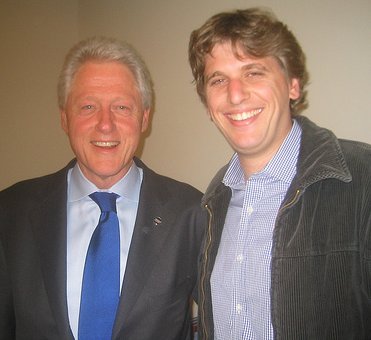
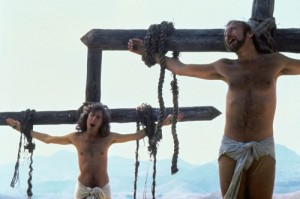
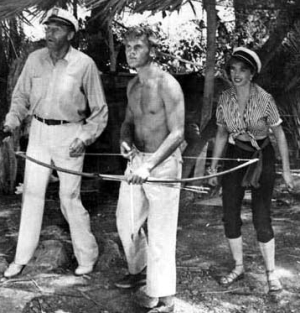


 Well, he got the "risk to their agenda" right, though maybe not in the sense he meant. Their agenda is to keep the war going, and keep the blame on the other team.
Well, he got the "risk to their agenda" right, though maybe not in the sense he meant. Their agenda is to keep the war going, and keep the blame on the other team.
 Matt Stoller is a certifiable jackass-licker,
Matt Stoller is a certifiable jackass-licker,
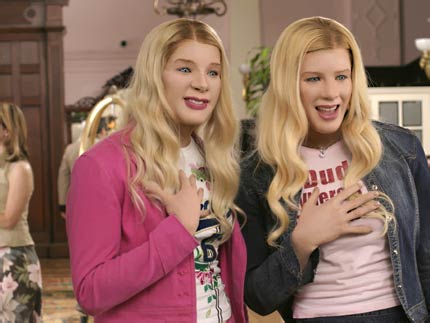



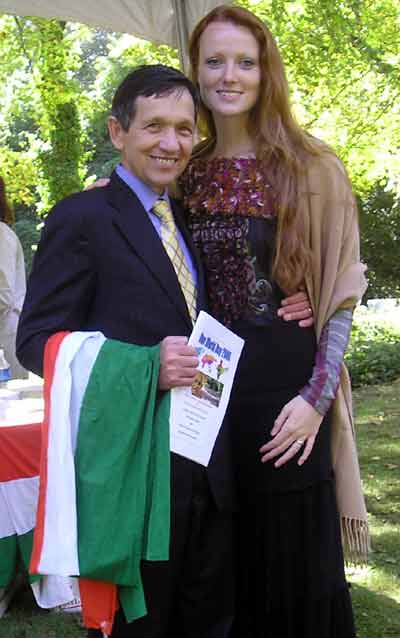 Alas, poor Dennis ....
He leaves the Great Race alive and alone, but unafraid --
well, not quite alone. There's the Valkyrie at his side.
Alas, poor Dennis ....
He leaves the Great Race alive and alone, but unafraid --
well, not quite alone. There's the Valkyrie at his side.
 Read this one, fans --
flabby-brained netscamp
David Sirota's cri de coeur to his
Kosniki mates:
"don't hate me -- just 'cause I made it big in the MSM."
Read this one, fans --
flabby-brained netscamp
David Sirota's cri de coeur to his
Kosniki mates:
"don't hate me -- just 'cause I made it big in the MSM."



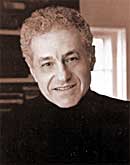
 You know Bill Godwin, the Pecksniffian ultra-libertarian parasite of a prig that
Parson Malthus trashed on his way to the largest spree of plagiarism in Regency English
letters.
You know Bill Godwin, the Pecksniffian ultra-libertarian parasite of a prig that
Parson Malthus trashed on his way to the largest spree of plagiarism in Regency English
letters.



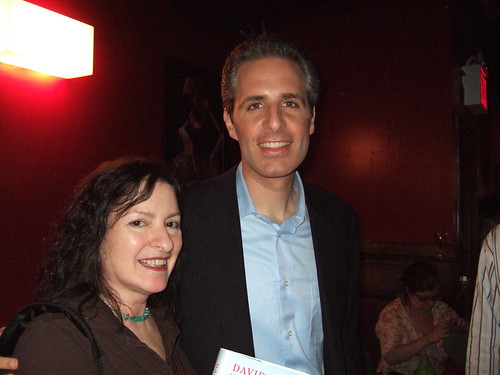
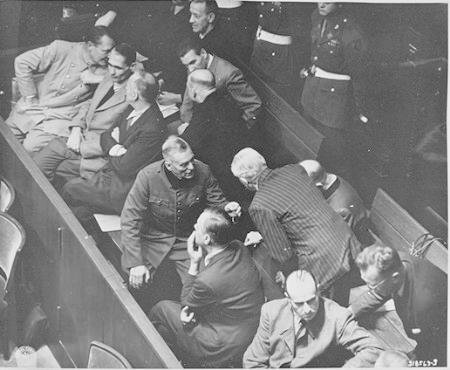
























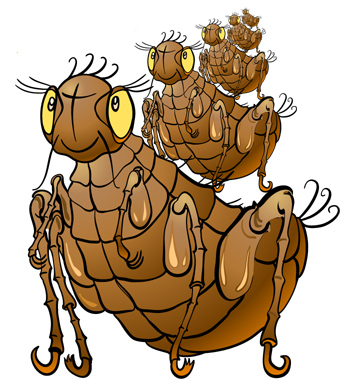

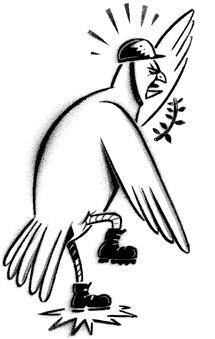



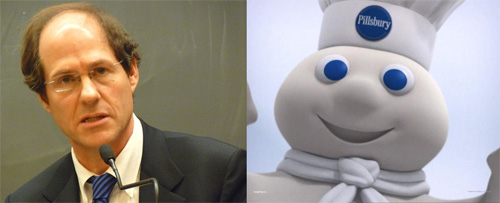









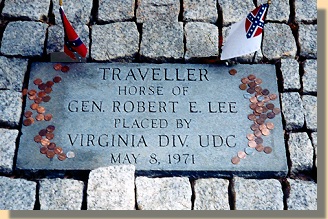




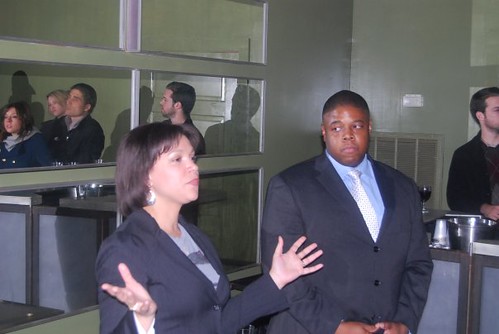





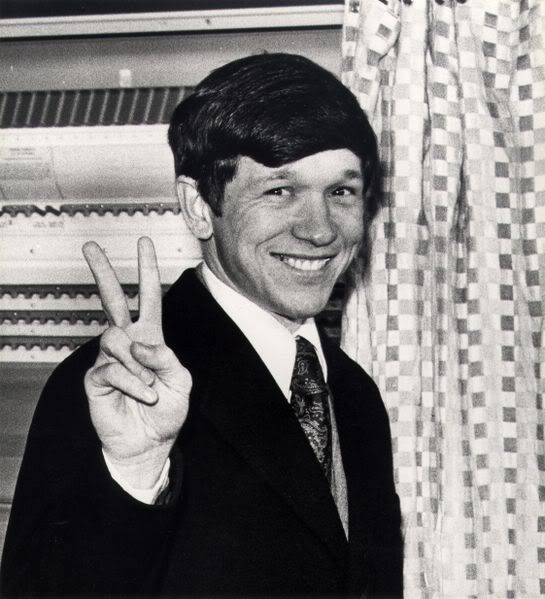

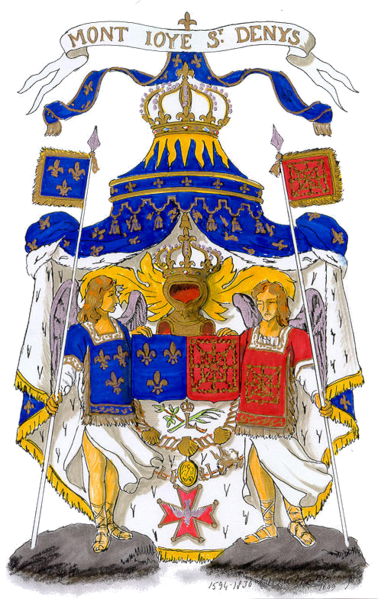

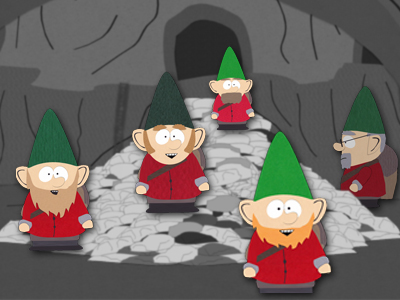

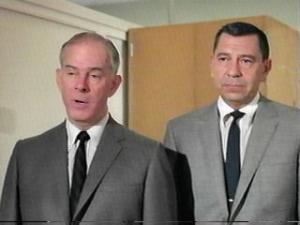 The Nation magazine has me on its mailing list. (I signed up because
I find Katrina van den Heuvel intensely attractive, and I sorta hoped she might
want to date me. That bony face, those sleepy eyelids, those lush wryly-curved lips...)
The Nation magazine has me on its mailing list. (I signed up because
I find Katrina van den Heuvel intensely attractive, and I sorta hoped she might
want to date me. That bony face, those sleepy eyelids, those lush wryly-curved lips...)

 I guess everybody has heard by now that the haute-wonquerie polls that Daily Kos has been
touting for so long were, apparently,
I guess everybody has heard by now that the haute-wonquerie polls that Daily Kos has been
touting for so long were, apparently, 
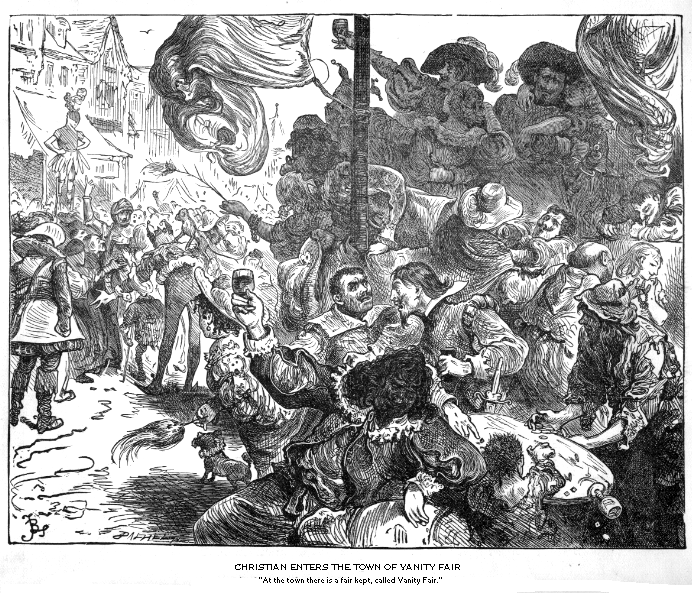



 Twitter may be just the right medium for Pwogs: 140 characters can easily contain any cliche they may have rattling around in their heads.
Twitter may be just the right medium for Pwogs: 140 characters can easily contain any cliche they may have rattling around in their heads. 

















 There's a chap on one of my Lefty mailing lists -- call him Brunellus -- who belongs to that irritating but fortunately now rare species, the CP Democrat. (That's the original Brunellus at left, a far more amiable and intelligent creature than my mailing-list pest.) Comrade Brunellus is one of only two or three individuals, on all my mailing lists, whom I have listed in my bozo filter; his communications go straight onto the dungheap.
There's a chap on one of my Lefty mailing lists -- call him Brunellus -- who belongs to that irritating but fortunately now rare species, the CP Democrat. (That's the original Brunellus at left, a far more amiable and intelligent creature than my mailing-list pest.) Comrade Brunellus is one of only two or three individuals, on all my mailing lists, whom I have listed in my bozo filter; his communications go straight onto the dungheap. 

